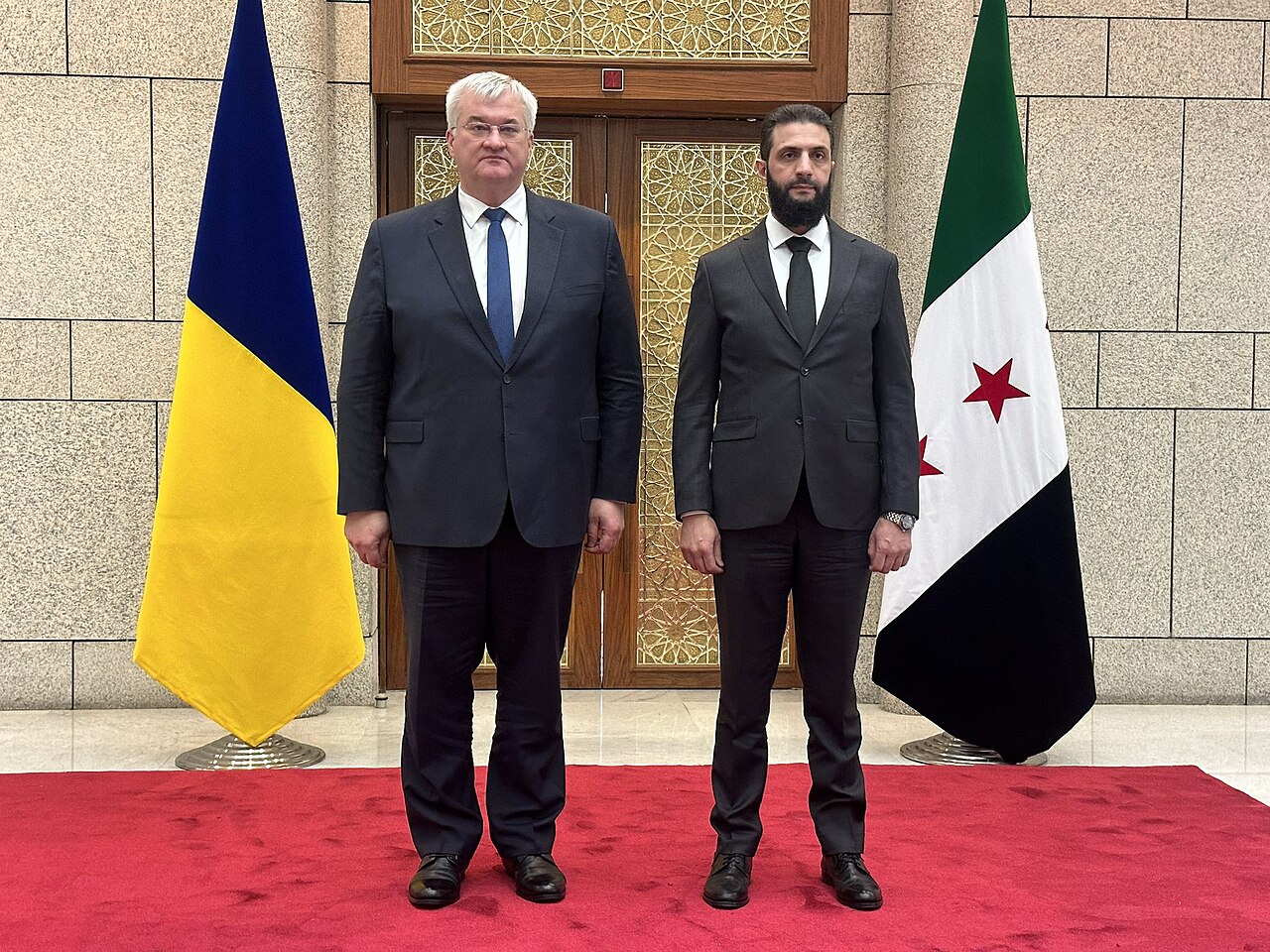President Trump has announced that he will lift all sanctions the US has against the Syrian government, which he says will “give them a chance at greatness.” He will also meet Syria’s leader, Hayat Tahrir al-Sham (HTS) leader Ahmed al-Sharaa on Wednesday.
The US has had sanctions on Syria since 1979, then declaring them a state sponsor of terrorism. They increased those sanctions in 2004 and again in 2011. The sanctions put in place in 2011 forbade all US citizens from investing in Syria in any way or providing services to their petroleum industry.
When the Syrian Civil War was raging, control over Syria’s once substantial oil and gas infrastructure was a big focus. The US helped the Kurdish SDF capture the Conoco gas field in the northeast, for instance. An American company, Conoco withdrew from Syria in 2005, and the field was run by the state-run gas company up until the war.

Ahmed al-Sharaa and Ukraine’s Foreign Minister Andrii Sybiha | Image from Government of Ukraine, under Creative Commons license Attribution 4.0
While the war apparently ended in December with the HTS seizing power, control over the infrastructure is still speculative, and the condition of those sites is uncertain, as many have not operated anywhere near full capacity for many years.
That may be where the meeting with Sharaa comes in. White House officials have confirmed the meeting, though Trump only said he “agreed to say hello” while both of them are in Saudi Arabia. Sharaa is expected to pitch a minerals deal to Trump, reportedly similar to the one agreed to with Ukraine.
This mineral deal proposal was couched as suggesting the mineral deal in return for the sanctions relief. With the sanctions eased, Syria would not only be able to recover frozen assets, but could also contract with US companies for bring the oil and gas industry back to its former capacity. The deal may also have an eye on encouraging the US to support HTS rule into the future for economic reasons. Sharaa has reportedly also offered a Trump Tower to be built in Damascus.
The meeting will likely be controversial, as the HTS is still a designed terrorist group in the US and Sharaa, who was formerly known as Abu Mohammed al-Julani, was a key figure in al-Qaeda in Iraq (AQI), captured by US troops during the Iraq War and held for years in various detention centers.
Sharaa has put a lot of effort into trying to reform his international reputation since taking power in December. Many remain skeptical, as the HTS itself has long historical ties to al-Qaeda, and remains ideologically similar, even though they publicly broke ties with them.
It is also expected that Sharaa will raise the prospect of normalizing ties with Israel. This is something Sharaa has brought up before, both suggesting it before successfully seizing power and more recently during a meeting with US representatives. Sharaa and Israel have recently engaged in secret talks, though Israel is still invading Syria and occupying parts of the southwest.
Meeting with Trump on the matter of normalization with Israel might give Sharaa a chance to move the process forward, though Trump’s own relationship with Israel is reportedly less certain than it once was, and Israelis may spin the meeting as a sign Trump is further moving away from the Netanyahu government.
Trump says he believes this is Syria’s “time to shine,” but exactly what form the US-Syria relationship will take from here is still uncertain.


